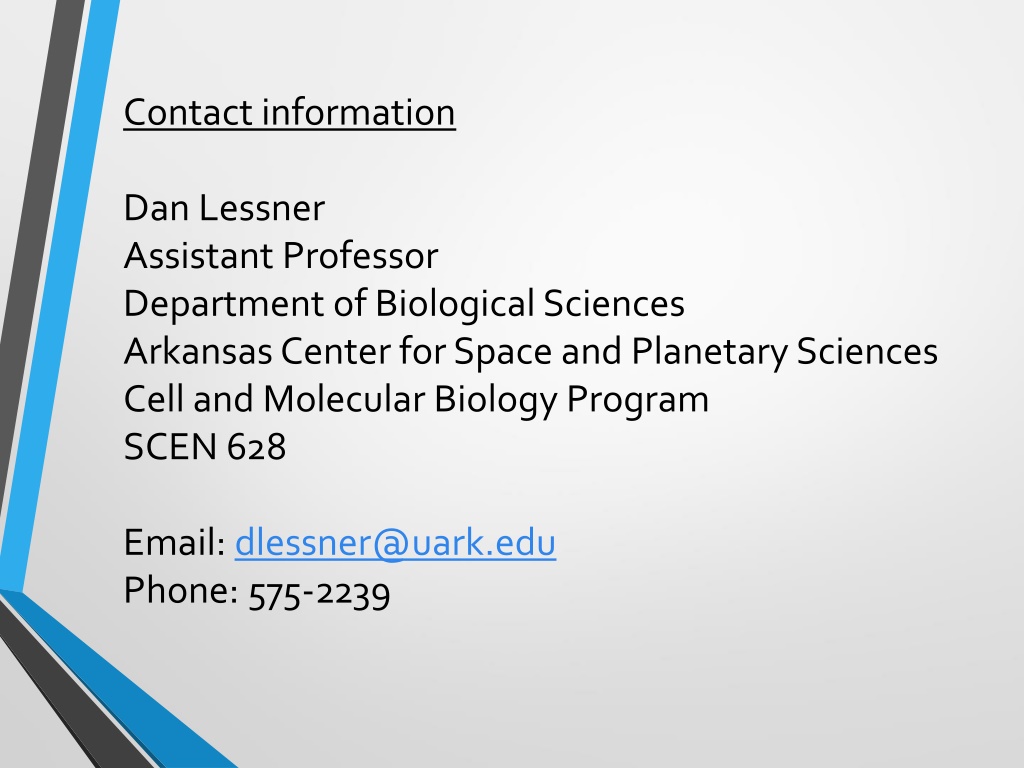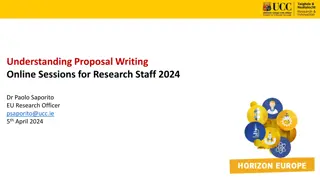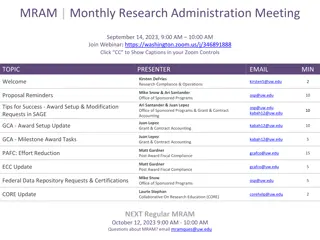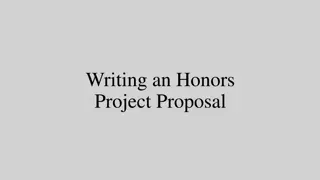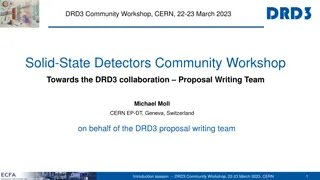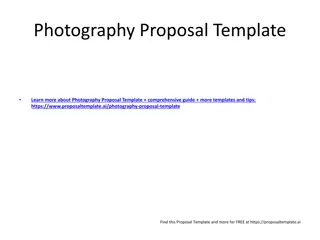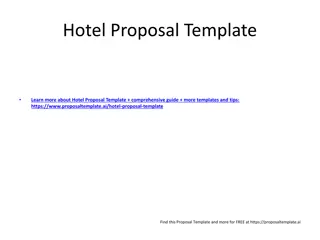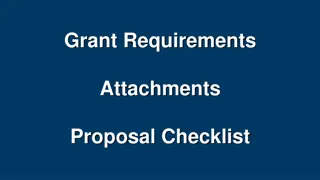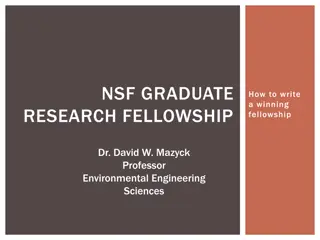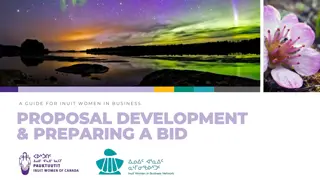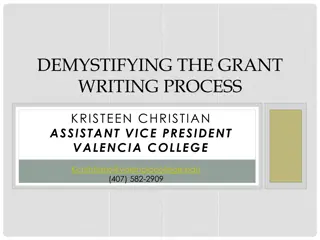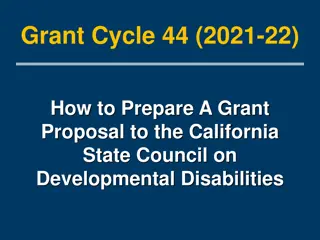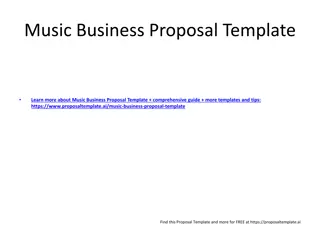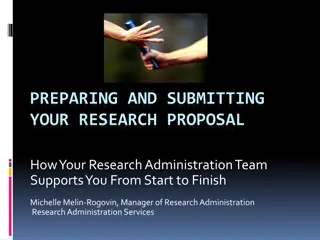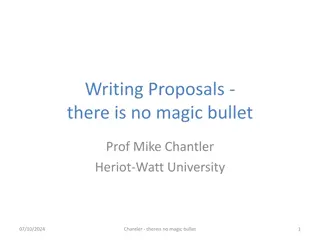Tips for Successful Proposal Writing in Research
The provided content offers valuable insights and tips for crafting successful research proposals. It covers areas such as background information, federal proposal submissions, general advice for starting early and seeking feedback, as well as specific tips on highlighting project goals, revising effectively, and providing clear timelines. These suggestions aim to guide researchers in effectively communicating their ideas and securing funding for their projects.
Download Presentation

Please find below an Image/Link to download the presentation.
The content on the website is provided AS IS for your information and personal use only. It may not be sold, licensed, or shared on other websites without obtaining consent from the author.If you encounter any issues during the download, it is possible that the publisher has removed the file from their server.
You are allowed to download the files provided on this website for personal or commercial use, subject to the condition that they are used lawfully. All files are the property of their respective owners.
The content on the website is provided AS IS for your information and personal use only. It may not be sold, licensed, or shared on other websites without obtaining consent from the author.
E N D
Presentation Transcript
Contact information Dan Lessner Assistant Professor Department of Biological Sciences Arkansas Center for Space and Planetary Sciences Cell and Molecular Biology Program SCEN 628 Email: dlessner@uark.edu Phone: 575-2239
My Background Started at the University August 2008 Research program: Physiology, genetics and biochemistry of anaerobic methane-producing microbes (methanogens) Submitted my first federal proposals Spring 2009 From 2009-2013 Submitted 17 proposals to federal and state agencies Agencies: NIH, NSF, DOE, NASA, ABI, DepScor, Human Frontier Science program Funded proposals Federal: NSF (2011) and NASA Exobiology (2012, 2013) State: ABI and NIH(Cobre)
General Tips Start early Get advice from several investigators and do what you think is best for your specific project (there is no magic formula) Talk to program officer(s) Gauge interest in your project Which division, program, etc should you submit your proposal to (Keep in mind your proposal (NSF) may move after submission!) Ask questions, program officers are a great resource
General Tips Get help Have experienced researchers read your proposal and provide feedback (give them time to do so) Look over a successful proposal (format, level of detail, etc.) If something is critical to success of the project, but you cannot do it, get collaborator or Co-I (have them provide letter of support) Project should be significant, not just incremental increase in knowledge (have realistic goals) If possible have multiple projects affording the opportunity to submit proposals to different agencies
Proposal specific tips Highlight the goal of the project (bold, underline), make it easy to find. Stress significance, Don t assume the reviewers are knowledgeable about your area (Remind the reader throughout the proposal) Goals, significance, and methods should be clear and concise (make it easy for the reviewers) Revise, Revise, Revise (clarify and simplify) Don t propose too much (realistic goals and amount of work) Provide a timeline, even if one isn t asked for.
Proposal SpecificTips Provide expected outcomes and possible caveats section for each specific aim Don t have pages of text with no breaks Use bolded headings, figures/tables, and space between paragraphs to break up text Convince reviewers that you have the expertise and capabilities to complete the project. May provide section explaining expertise of the principal investigator or key personnel, especially if you have not published in the specific area.
Proposal SpecificTips Balance level of detail in methods. Too much detail is tedious, especially if standard technique, but too little detail may not convince reviewer that a novel technique will work. If possible, provide names of suggested outside reviewers When your proposal is declined, contact the program officer and get feedback (wait a few days!) Revise and resubmit, do not be discouraged!
GOOD LUCK! Questions?
